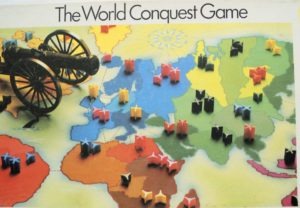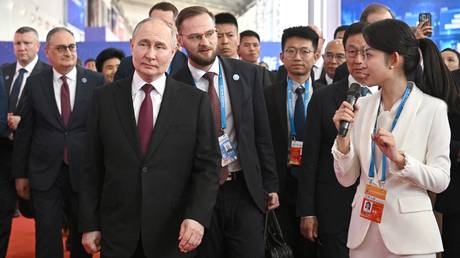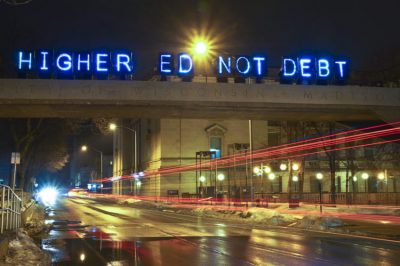The American Empire Pivots Toward Venezuela
by Michael Krieger, Liberty Blitzkrieg:

Many people are coming to quick takes on yesterday’s extraordinary decision by the U.S. government to recognize an unelected opposition leader as interim President of Venezuela based on their view of Maduro and his government. Similar to the emotional responses to those first clips of the Covington students and Nathan Phillips, such superficial opinions feel good and confirm biases, but don’t tell you much about what’s really going on. From my seat, the move by the Trump administration to choose the leader of Venezuela by diktat is just straight up imperial geopolitics. Nothing more, nothing less.
A month ago, I reassessed my geopolitical assumptions in the post, Is U.S. Geopolitical Strategy Experiencing a Monumental Shift? In it, I detailed how U.S. foreign policy seemed to be shifting toward a focus on containing China, which would lead to a far more serious confrontation between the world’s number one and number two economies.
I’ve now seen enough to seriously consider that we may be entering an entirely new geopolitical environment dominated by vastly increased tensions between the U.S. and China. If so, it will likely last a lot longer than you think as leaders in both China in the U.S. will be looking for a scapegoat as their crony, financialized economies struggle under unpayable debt and unimaginable levels of corruption.
With the attempt to push Russia back in Syria a clear failure, the neocons in Trump’s administration quickly got to work on their next scheme. Enter Venezuela.
Venezuela. Wow this story really has it all.
Bad guy with a mustache, oil reserves, a Russian ally, gold.
Just another act in the desperate attempt to preserve a uni-polar empire.
— Michael Krieger (@LibertyBlitz) 24 January 2019
I’ll get to all that in a bit, but first let’s discuss how this relates to the increased tensions with China. As reported by The Guardian earlier today:
Venezuela has been one of Beijing’s closest allies in Latin America, and the largest recipient of Chinese financing, taking as much as £38bn in loans by 2017. China is Venezuela’s largest creditor, prompting concerns that as Venezuela’s economy spirals, state assets could fall into Chinese hands, as was the case with Sri Lanka’s Hambantota port.
It is in Beijing’s interest to support Maduro, given that a new government could refuse to honour Venezuela’s debt obligations to China. Maduro met China’s president, Xi Jinping, last year and toured Mao Zedong’s mausoleum in Beijing, and the countries agreed on £3.8bn in loans and more than 20 bilateral agreements.
Of course, Russia is also a close ally of Maduro:
Russia’s Vladimir Putin spoke by telephone with Maduro and offered him strong support in a political crisis he said had been “provoked from abroad”, a Kremlin statement said. “Destructive interference from abroad blatantly violates basic norms of international law,” Putin was quoted as saying…
Russia’s prime minister, Dmitry Medvedev, described the US support for Guaidó as a “quasi-coup” and accused the US of hypocrisy, asking rhetorically how Americans would react if the House speaker, Nancy Pelosi, declared herself president.
Sergei Ryabkov, Russia’s deputy foreign minister, said a US military intervention in Venezuela would be catastrophic.
Russia is an important source of financial support to the Venezuelan government, providing billions of dollars in loans, some as pre-payment for future deliveries of oil. Last month Russia dispatched two nuclear-capable Tu-160 bombers to the country in a further show of support.
Once you start getting all these facts, it becomes clear the U.S. isn’t trying to help Venezuelans achieve “freedom and democracy,” but the goal is to push back against the empire’s primary geopolitical rivals who have been busy working on creating a multi-polar world order.
Read More @ LibertyBlitzkrieg.com
Loading...



